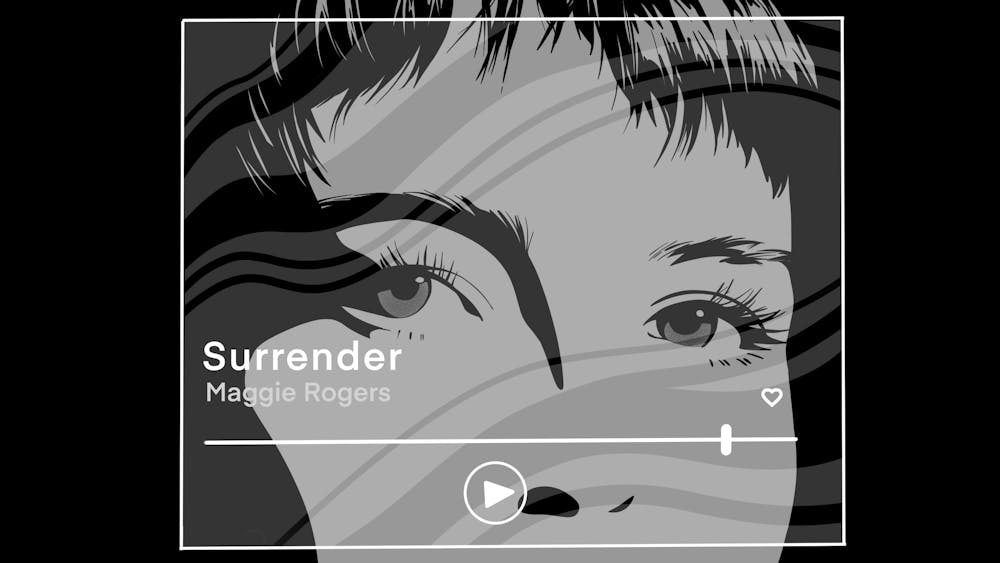After rendering Pharrell Williams speechless in a New York University masterclass with the lilting folktronica song “Alaska,” Maggie Rogers became famous in the way that singer–songwriters only dream of—overnight and all at once. But instead of capitalizing on her newfound fame, she disappeared after her 2019 tour, retreating to coastal Maine to cope with burnout. Rogers enrolled in Harvard Divinity School and began creating music once again, culminating in her second album, Surrender, which is aptly titled after her master's thesis—an examination of the almost spiritual relationship among artist, audience, and performance.
Surrender explores what it means to lose yourself in pure emotion. It feels like walking out of a movie theater after watching a particularly resonant rom–com, the kind that makes your heart beat fast as you bask in its afterglow and orient yourself to a rosier version of reality. From the unabashed joy of “Anywhere With You” to the primal desire of “Want Want,” Rogers shamelessly and deeply feels everything good in life.
In line with her master’s degree, Surrender traverses its highs and lows in a way that mimics the emotional fervor of religious faith. On the album’s third single, “Horses,” Rogers seamlessly interweaves the lower energy of the verses with the soaring chorus, building up and releasing tension deftly and explosively. Written in one day and recorded in one take, the production of “Horses” parallels the album’s rawness and intensity.
But among songs like the sunshine–y “Be Cool,” which dreams of “a summer just to be a teenager / Drunk on the month of June,” the generally warm and golden Surrender also has moments of cold anger. “Shatter,” complete with shreddy, metallic synths and album co–producer Florence Welch’s haunting cries, encapsulates Rogers’ frustration with the world’s dark, complex present. She ragefully yearns for simpler times (2016, to be exact), singing, “And I've got all this anger trapped so deep inside / That started burning the summer my heroes died / And I just wish that I could hear a new Bowie again.”
“Symphony” is arguably one of the strongest songs of the album, with Rogers’ agile voice singing of being with loved ones as the world falls apart. Her voice floats on top of whirling instrumentals and gasping drums that gradually build as the song progresses. With Rogers’ masterful artistry, you begin to breathe with the song, holding your breath in moments of intensity and exhaling in moments of sparsity. As “Symphony” controls your breath, it evokes that moment when you’re so close to someone that you begin to breathe at the same pace—it brings to life the feeling of being at total peace in someone else’s presence, collapsing the universe down to just you two. But among the twisting inhales and exhales of “Symphony” plainly lies Surrender’s greatest truth: “Life’s a promise that never ends / But you can handle it / Take a breath.”
LIYL: Arcade Fire, Florence Welch, “Sex on Fire” by Kings of Leon, rooftop sitting, cutting your hair short, Robert Pattinson in every form, getting day drunk in the summertime, the afterglow of rom–com credits.

